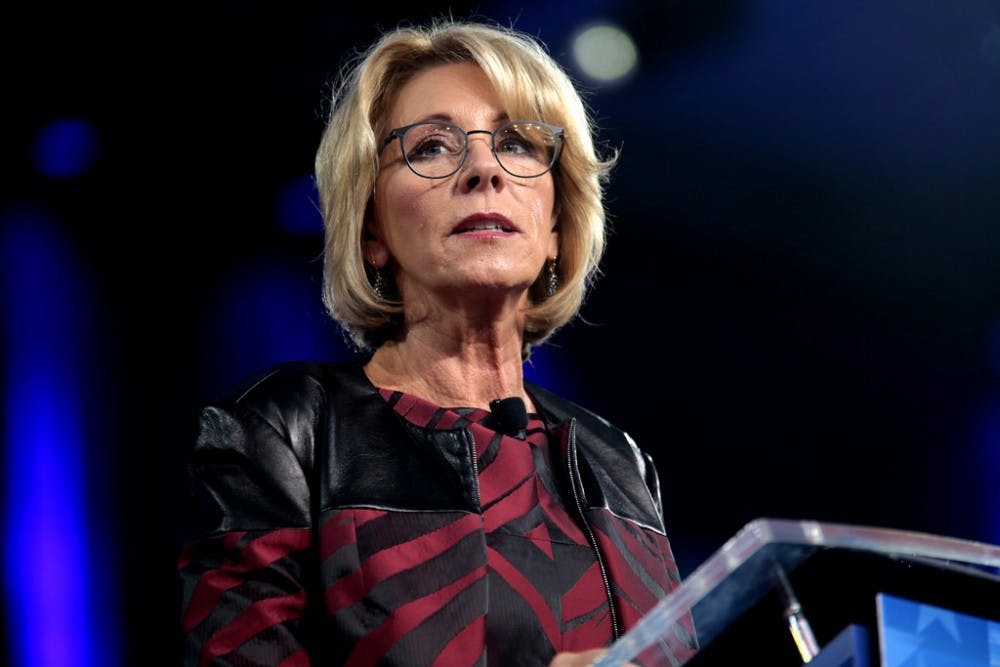Education Secretary Betsy DeVos called for an overhaul of sexual misconduct policies on college campuses. The New York Times obtained a draft of these proposed rules on Aug. 29. No official proposal has been made yet.
The potential new rules would preserve most of the Title IX guidelines but restrict the definition of sexual harassment and increase the rights and protections offered to students accused of sexual misconduct. Under the proposed guidelines, schools would only be held responsible for instances of misconduct that occurred on their campuses and that were registered through the formal reporting process to the appropriate authorities.
These policies, which have not been officially submitted, could still be revised further during a public comment period, in which any citizens may make recommendations, before they are finalized. According to a written statement to The News-Letter from Executive Director of Media Relations and Crisis Communications Dennis O’Shea, the University does intend to provide feedback to the Department of Education during this period.
In 2015, the University revised its sexual misconduct policies in response to feedback from the Hopkins community and the guidelines specified in the 2014 “Dear Colleague” letter written by former U.S. President Barack Obama’s administration. The 2014 guidelines were the first to explicitly include sexual misconduct as part of the general definition of harassment and also lowered the standard of evidence required to find an accused perpetrator responsible in a sexual misconduct investigation.
Though DeVos rescinded the “Dear Colleague” letter in September 2017, Provost Sunil Kumar and Vice Provost for Institutional Equity Kimberly Hewitt ensured the Hopkins community that the 2015 policies would remain.
O’Shea wrote that even considering recent developments, University policy remains unchanged and that Hopkins does not anticipate any policy changes during the public comment period.
“We will follow developments closely, but remain dedicated to prompt, fair and effective resolution of complaints of sexual misconduct, including sexual assault,” O’Shea wrote. “We are fully committed to a policy and process that are thoughtful, supportive and responsive to the complexities of addressing sexual misconduct on college and university campuses.”
In an email to The News-Letter, Sexual Assault Resource Unit (SARU) Co-Presidents Mayuri Viswanathan and Bella Radant discussed the effect of the August 29 reports on the campus environment surrounding sexual misconduct.
“Unfortunately, there is a lot of uncertainty right now about what this will look like, both at a national level and on our campus,” they wrote. “But we look forward to working with students and administrators to make sure protections for survivors stay in place and continue to expand at Hopkins.”





